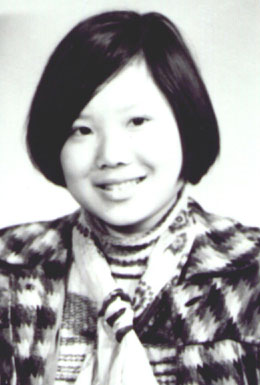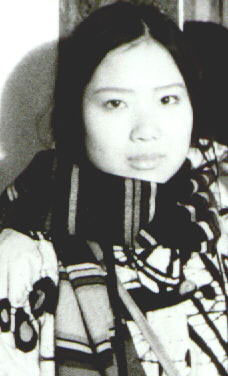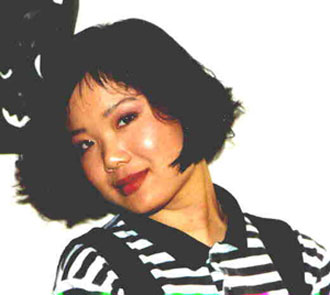Annie Wang:
Beijing’s Badgirl of Letters
PAGE 2 OF 3
GOLDSEA | ASIAMS.NET | ASIAN AMERICAN PERSONALITIES
Annie Wang:
Beijing’s Badgirl of Letters
“Chinese is my mother tongue,” she says, “I use it to swear and bullshit with my buddies. It’s in my blood. I love the rawness in Chinese street language. All I hope is that the people of my generation have become more cosmopolitan; it is possible to be accepted in both places. After all, I live in both places.”
Wang chose to answer a few of the questions posed to her and for the rest she redirected us to some unpublished essays. Wang often arrives roughshod at spelling and grammatical conventions.
GS: The three main characters in The People’s Republic of Desire are all involved in the media. Are they more cynical and prone to disillusionment in relationships, what affect do you think this has on their life’s perspective?
AW: Yes, perhaps. They are definitely more cynical because they have seen and heard so many sad stories about relationships.
GS: Are BeiBei’s cynicism and offhand treatment of sex common characteristics of Beijing women?
AW: It is less common. She is so independent and unconcerned about men’s money, that is not very common. Also, she does not treat sex as a means to gaining favors. Some women use sex as weapons so that men will do things for them or buy things for them.
GS: Is LuLu’s hopeless romanticism more common?
AW: Yes, I would say so, but Chinese women of the younger generation have become very very materialistic. So they can be naive about emotions and relationships despite the fact that they may be more sexually experienced than their mothers were at their age. Also, they are very aware of importance of men’s wallets.
GS: How has China’s modernization impacted the role of women?
AW: Sexually, women are more open-minded. But the increase in materialism has turned a marriage to a rich man, as opposed to independent financial achievement, into the epitome of success and I view this as backwardness.
GS: Tell us about your first story published when you were 14
AW: It’s about how a former friend turned into a bad girl.
GS: Tell us about your first novel published in China
AW: The novel explores and criticizes the deeply-rooted racial prejudice against black people among the Chinese through the depiction of an obsessive, sensual love affair between a young Chinese woman, an MBA graduate from University of Chicago and a Western-African immigrant who she met in a hotel lobby in New York.
GS: How old were you when you began writing?
AW: 6.
GS: What kinds of things did you write about in your earliest work?
AW: Interviews and profiles of famous people and poetry.
GS: Did you initially plan on pursuing journalism or fiction?
AW: Journalism.
| < |

Wang as a middle-schooler (Courtesy of Annie Wang) |

|

